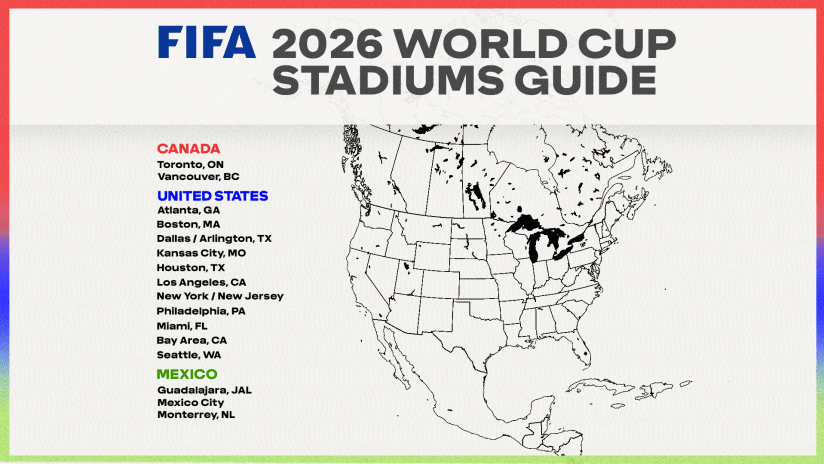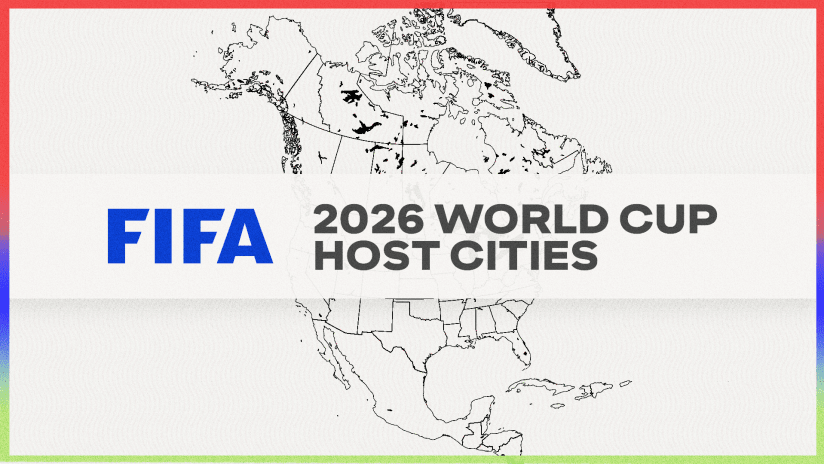WASHINGTON – The line to get into the subterranean bar about a mile east of the White House snaked up a flight of stairs and out onto the sidewalk in downtown D.C., filled out by a few hundred fans and VIPs ready to celebrate the return of the world’s game to the soccer-loving city whose politicians so often refer to it as “the capital of the free world.”
But Thursday evening’s celebration turned glum, then angry, and emptied faster than a losing candidate’s election-night shindig. A planned speech by Mayor Muriel Bowser was scratched and stacks of free drink coupons were left unused as FIFA executives in New York delivered the gut-punch on live television: The United States capital will not be among the 16 venues hosting World Cup 2026 matches.
“I was walking down and I saw all these frowning faces coming up, and I said, ‘Did I miss the show?’” said D.C. United icon and former head coach Ben Olsen, who arrived just as the news was delivered. “They were just looking at me like I was being stupid. I wasn’t being sarcastic.
“I was on two news stations today saying, ‘What are you talking about? It’s the nation’s capital. Yes, of course we’ll get the bid.’ So I was a little naive in this process too,” he added. “I just thought it was a slam dunk.”
The capital region hosted five World Cup matches in 1994, nine Olympic soccer matches in 1996, six Women’s World Cup matches in 1999 and multiple professional clubs over the decades. A founding MLS market, it served as the US men’s national team’s unofficial home for many years and witnessed three MLS Cup finals, two MLS All-Star Games, one of the old NASL’s “Soccer Bowl” championships and myriad other club and international soccer games of note over the decades. Its venues have been graced by all-time greats like Pele, Johan Cruyff, Roberto Baggio, Ronaldinho, Andres Iniesta and Lionel Messi.
Now it’s probably the biggest snub as the world’s biggest sporting event prepares to return to North America. It’s just the third time in the World Cup’s history that a primary host nation’s capital city would not host games.
“Honestly, I think everyone thought that it was an extremely high probability that D.C. would get it,” said Mark Ein, local investor, sports backer and co-chair of the DC2026 Advisory Board. “The strength of the community, the passion for soccer, the history of soccer, the fan fest on the National Mall, combined with a really good stadium, seemed compelling. But it’s also complicated, right?”
D.C.’s candidacy was badly complicated by the shortcomings of FedEx Field, the Washington Commanders’ unloved NFL venue in suburban Maryland. It has hosted plenty of soccer but sits on the metro area’s periphery and has been poorly maintained over the years, its seating capacity drastically reduced in attempts to regulate ticket demand.
A FIFA site visit in September reportedly gave such low marks to the stadium that D.C. organizers were led to combine their bid with nearby Baltimore’s, where the more highly-rated M&T Bank Stadium was to host matches while World Cup fan activation events took place in the heart of Washington. Dovetailing with massive celebrations planned for the United States’ semiquincentennial, or 250th birthday, on Independence Day, those plans were seen as unique and exciting enough to overcome concerns about the hybrid arrangement.
That was not the case.
“I’m very surprised,” said Ein. “Once we got the deal with Baltimore, so we had the national fan festival on the National Mall and the stadium in Baltimore, we all thought that would carry the day. And the history of soccer in Washington is very compelling. There is just a lot of shock.”
In the moment, he and his colleagues were left to speculate on potential doubts about the joint bid gambit, or the advantages of geographic rivals like Philadelphia.
“We were happy to partner with Baltimore. There’s really no looking back in that regard. we felt like that put us in a good position and that was an edge,” said Ralph Morton, senior VP of EventsDC.
Or whether contentious contemporary politics and ugly incidents like the violent insurrection at the US Capitol on Jan. 6, 2021 gave the city a black eye on the world stage.
“Once people come and understand what it’s like to live and visit here, you love it,” said Ein, a native of the area. “But if you haven’t done that, the images broadcast around the world are just of a different place. I’m not necessarily saying that’s what happened here. But it’s the thing we always face.”
Asked about D.C. in a post-unveiling press conference, FIFA leaders were diplomatic, if vague, while acknowledging the magnitude of the snub.
“It’s been an incredibly competitive process, all the cities have been amazing. So this was a very, very difficult choice,” said FIFA chief competitions and events officer Colin Smith. “It’s hard to imagine, in fact you can’t imagine a World Cup coming to the US and the capital city not taking a major role as well.
“There’s still lots of other areas of cooperation and working together and celebration. We know what a fan fest on the National Mall would be like, on the 250th anniversary of the US on the Fourth of July in ‘26.”
Pressed to confirm whether such a fan fest would still take place, Smith hedged, only for FIFA president Gianni Infantino to playfully interject with a loud “yes.”
Whether via officially organized events or not, Olsen agreed that it’s the best option available at this point for a region proud of its deep, broad soccer roots and culture.
“So what, we can still do it. The World Cup’s not over. This is still a celebration of the game, so let’s celebrate, let’s have a blast,” said the 2006 USMNT World Cup veteran. “It doesn't change the fact that I'm going to enjoy the hell out of this Cup.
“I’m disappointed. But you move on and you make sure we still represent D.C. in the right way. Hopefully the city is still on board and we can still make this a special event.”















